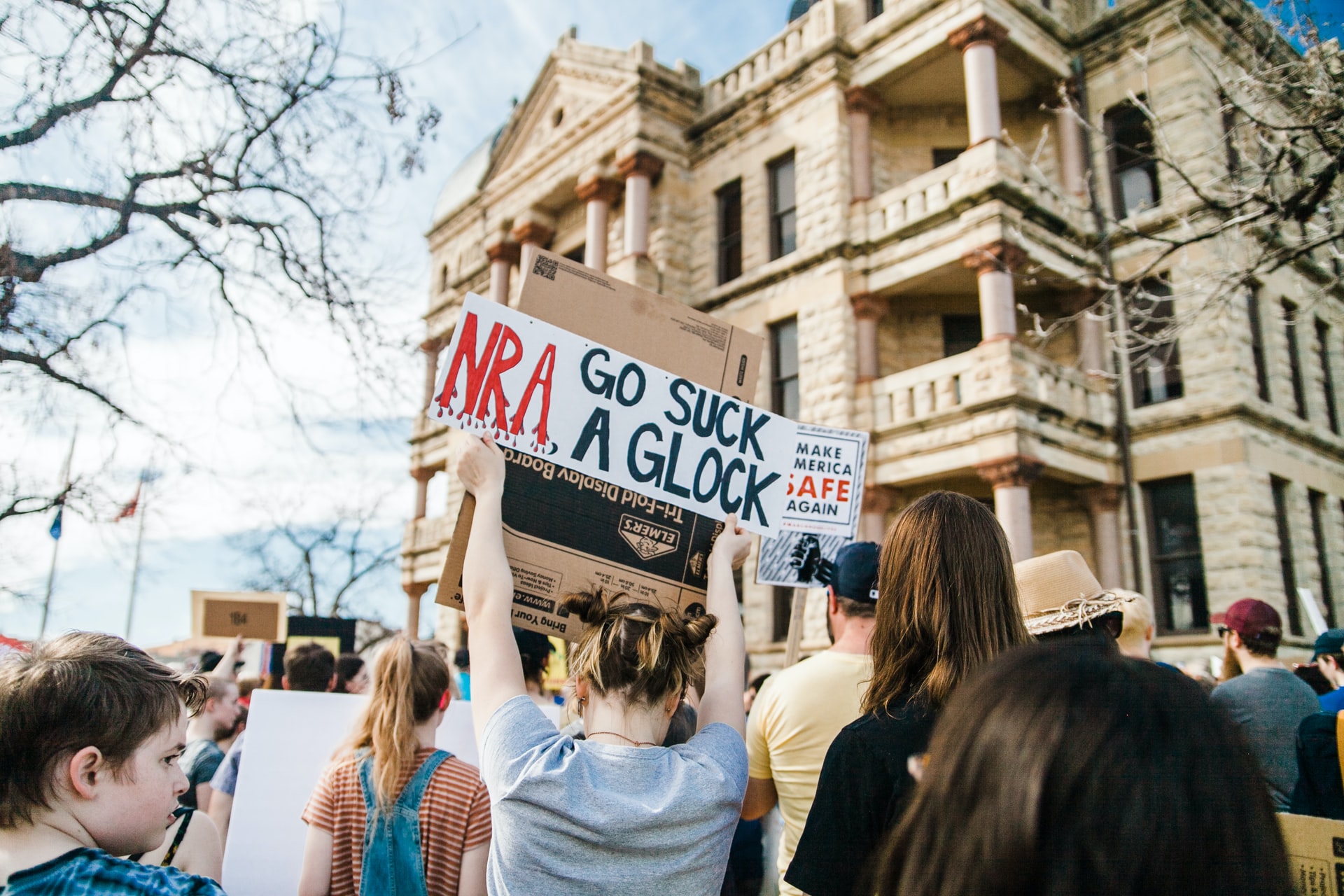In the fall, the New York attorney general sued to dissolve the non-profit National Rifle Association on the basis of diverting millions of dollars from the organization into its leaders’ lavish lifestyles. The court battle can be seen as one of many backlashes in recent years on the NRA operation advocating for fighting guns with guns. However, the NRA continues to thrive on strong support despite rising numbers in mass shootings.
The mass shooting paradox
The New York State attorney general Letitia James sued the NRA for unlawfully diverting around $64 million dollars over the past three years into the pockets of senior NRA leaders. Money that was subsequently spent on family trips, designer clothes, private jets and expensive meals. According to whistleblower Joshua Powell, who was formerly the NRA second-in-command, the launch of the investigation into the lobby group is only scratching on the surface of decades of fraud. In his book, Powell opens the NRA up to scrutiny by depicting his years in the organization’s leadership as full of greed and money being poured into private expenses. Moreover, some years back, The Guardian reported that a Yahoo news investigation also found that the NRA had broken political spending law while reporting its fundraising spending. A credit card statement had shown that donations had mixed its corporate funds with their political action committee in an attempt to avoid the possibility that the International Revenue Service (IRS) could decide to revoke its tax-exempt status. However, while the NRA will likely need to relocate their head office from New York, the lobby group has experienced its strongest support under the Trump Administration, despite an uptick in mass shootings in recent years.
According to the Gun Violence Archive that collects data on mass shootings, around 2000 mass shootings have taken place since 2012. Only nine months after Donald Trump took office in 2016, America recorded its deadliest mass shooting in modern history when a gunman opened fire into crowds on the Las Vegas Strip, killing 58 people. These types of tragic outcomes have, however, not been voiced as a larger issue in the White House during previous conservative presidencies. In fact, President Trump and Vice President Pence are the two highest officeholders ever to have spoken at the NRA annual event. Trump moreover reversed the Obama-Biden administration policy of restorative justice and disciplinary measures that tackled student behavior without getting law enforcement involved. Over the course of the coronavirus pandemic, Trump has also been part of the reason for the sky-high gun sales at the end of March 2020 with 1.2 million firearm background checks having been conducted as gun stores were classified as “essential” businesses, allowing them to stay open during lockdown. With Joe Biden’s win in the U.S. election, fear of new gun control legislation following his inauguration in 2021 are expected to increase demand for firearms, possibly setting a new record in sales. How could it get to this point?
Blindfolding the gun control debate
The National Rifle Organization is a political lobby group in the United States that has directly influenced American gun policy since 1974 and channeled funds to legislators since ‘77. Spending about $250 million a year, the lobby group far exceeds the combined budget of the country’s gun control groups. The strength of the organization comes from it being part of a larger gun culture in the U.S. with thousands of backing members supporting their narrative. For many Americans and especially to members of the NRA, guns are a part of life, a hobby, a family tradition, or even a livelihood. Americans own more than 40% of the world’s guns, and the greatest beneficiaries of this are the gun manufacturers who have created a $8 billion-a-year industry. Historically, U.S. gun culture depends on the Second Amendment to the U.S. Constitution. It originated in a time period when the country did not yet have a standing army as a newly formed nation, which thus stated it necessary to own firearms for the security of the free state as well as keeping the federal government from interfering with these rights. Backed legally by the Second Amendment, the NRA and the gun industry are mutually reinforcing each other, where the NRA receives yearly support from at least 30 gun manufacturers and in turn, the NRA is one of the strongest marketing forces for gun sales.
The backbone of the association is the argument that owning firearms is key to personal security and protection. An article in NBC News writes that front figures from the NRA have been vocally rejecting calls for stricter universal gun control policies in response to several infamous mass shootings. In 2012, after the horrific Sandy Hook Elementary School shooting where a man killed six adults and 20 children aged between six and seven years old, the organization’s executive vice-president Wayne LaPierre originally coined the now well-known response; “The only thing that stops a bad guy with a gun is a good guy with a gun.” A similar sentiment was expressed again in 2015, when the web series host for the NRA, Colion Noir, said on his show that Barack Obama and Hillary Clinton were exploiting the emotional turmoil of the shooting of a reporter and cameraman in Virginia to push for gun reform.
The advocacy for fighting fire with fire has had a strong effect on the policy climate of mass shootings in recent years. According to James Alan Fox, a professor of Criminology, Law and Public Policy at the Northeastern University, the logic of self-defense and fighting terrorism have taken over the debate of the prevention of school shootings since the event of 9/11. Labelling gun violence as terrorism refocuses the blame on external forces and takes away the fact that white supremacists and extremists conducted two thirds of all domestic terrorist attacks in the U.S. in 2020, using firearms as their predominant weapons. In fact, between 2002 and 2014, 85% of people killed by domestic terrorists were killed by a gun. The problem of separating the debate on gun control and extremist violence is counterproductive and can lead to blind bias in policymaking, as for example Trump’s controversial policy ban on people entering the U.S. from several Muslim majority countries in 2015.
Beyond smart advocacy, the association is also quick to recover from direct criticism. In a recent press release on Friday, the NRA declared its move to Texas after filing for bankruptcy in the New York lawsuit as an attempt to freeze their debt. The move presents the unrolling of a new strategy under “Project Freedom” to secure the association’s lobbyism against what they call “anti-Second Amendment activities”. The press release quotes LaPierre using divisive rhetoric: “[T]he NRA abandons a state where elected officials have weaponized the legal and regulatory powers they wield to penalize the Association and its members for purely political purposes.” However, NY attorney general James was quick to respond to the news on the same day during virtual town hall: “While we review this filing [for bankruptcy], we will not allow the NRA to use this or any other tactic to evade accountability and my office’s oversight.” All the while the NRA’s militarized view on lobbying for the Second Amendment will likely push for further polarization in American politics, the implications of the new strategy will likely cement the NRA’s hold over U.S. gun policy too.

Isabel Wilson
Writer for Utblick since autumn 2020





